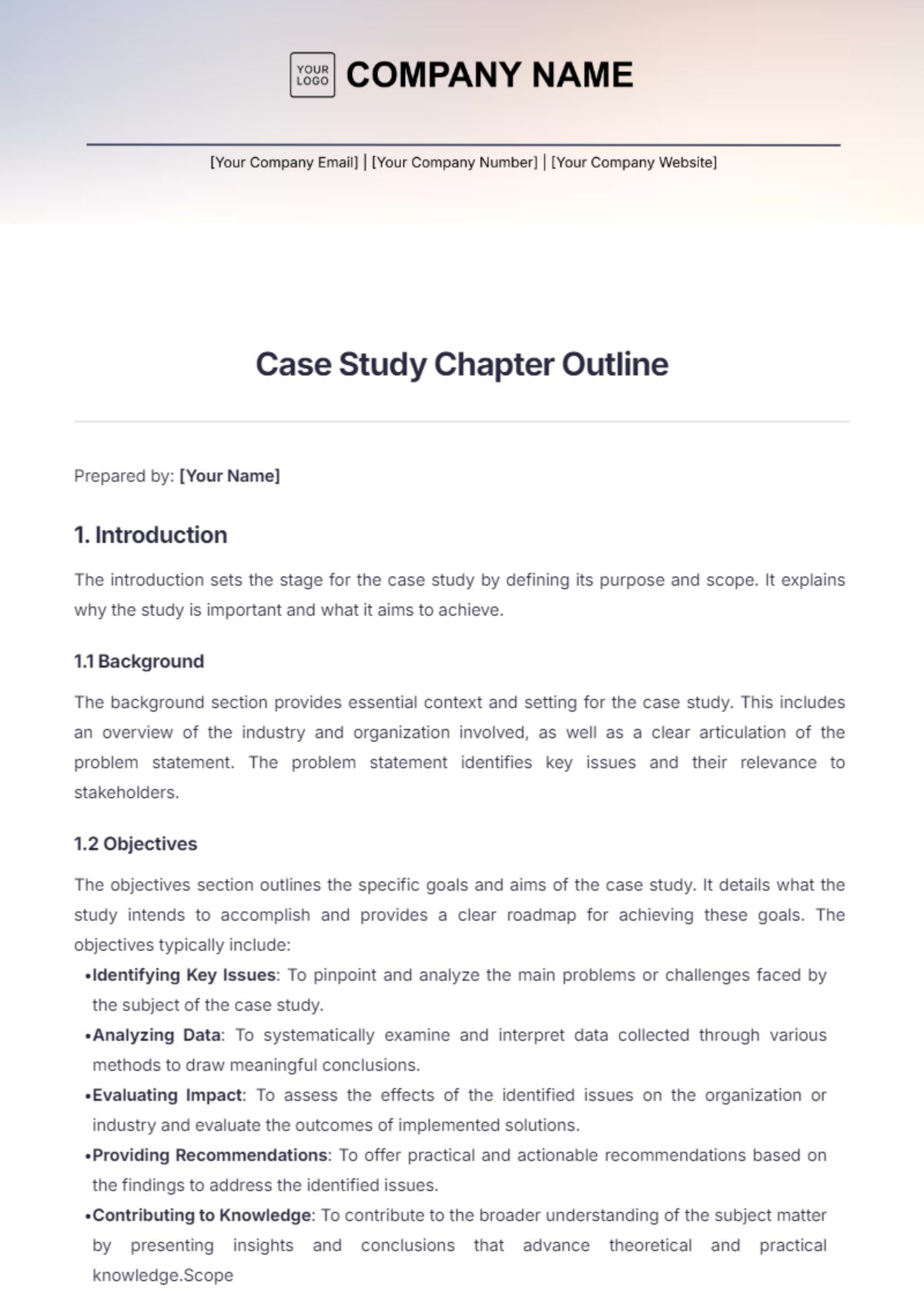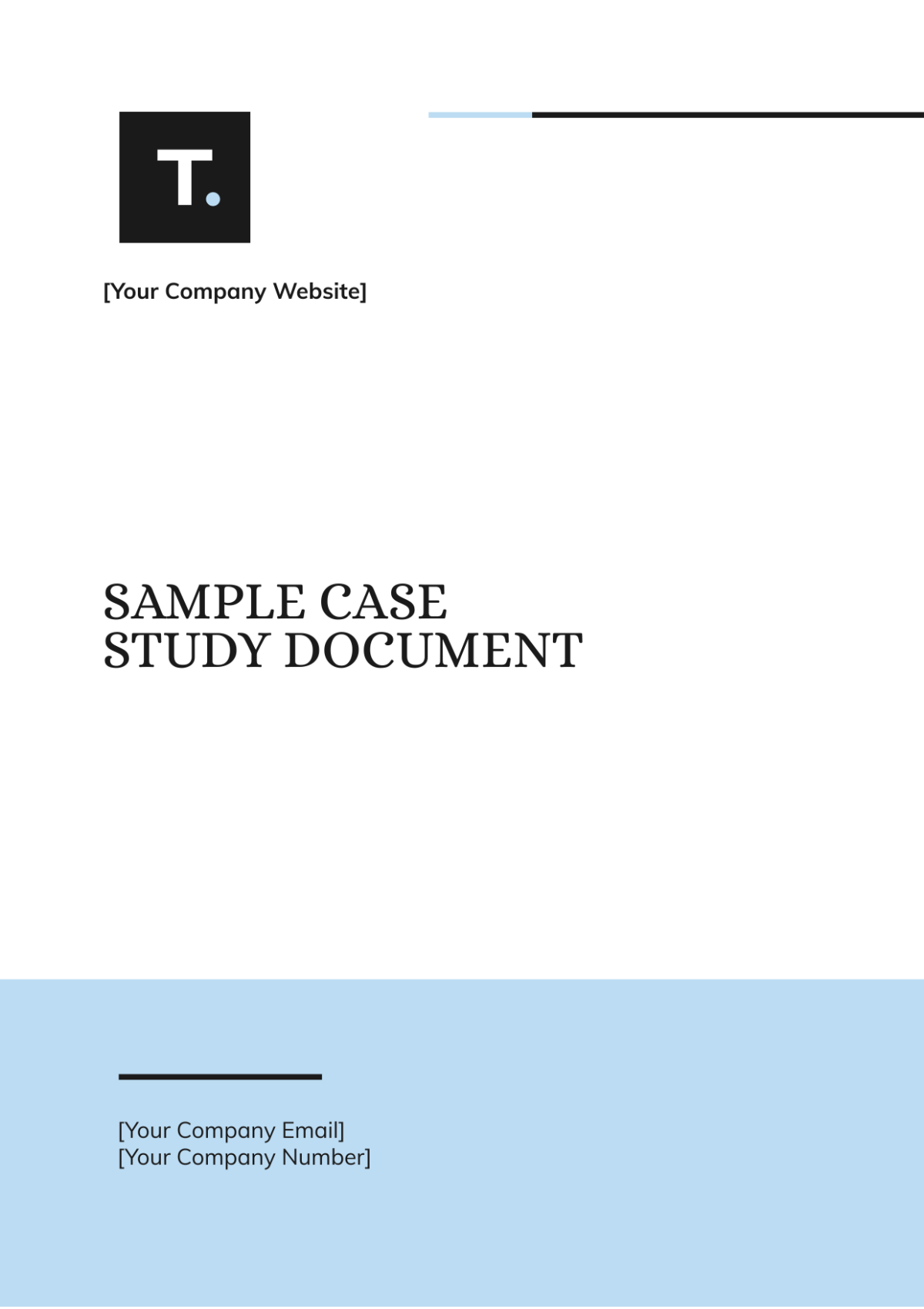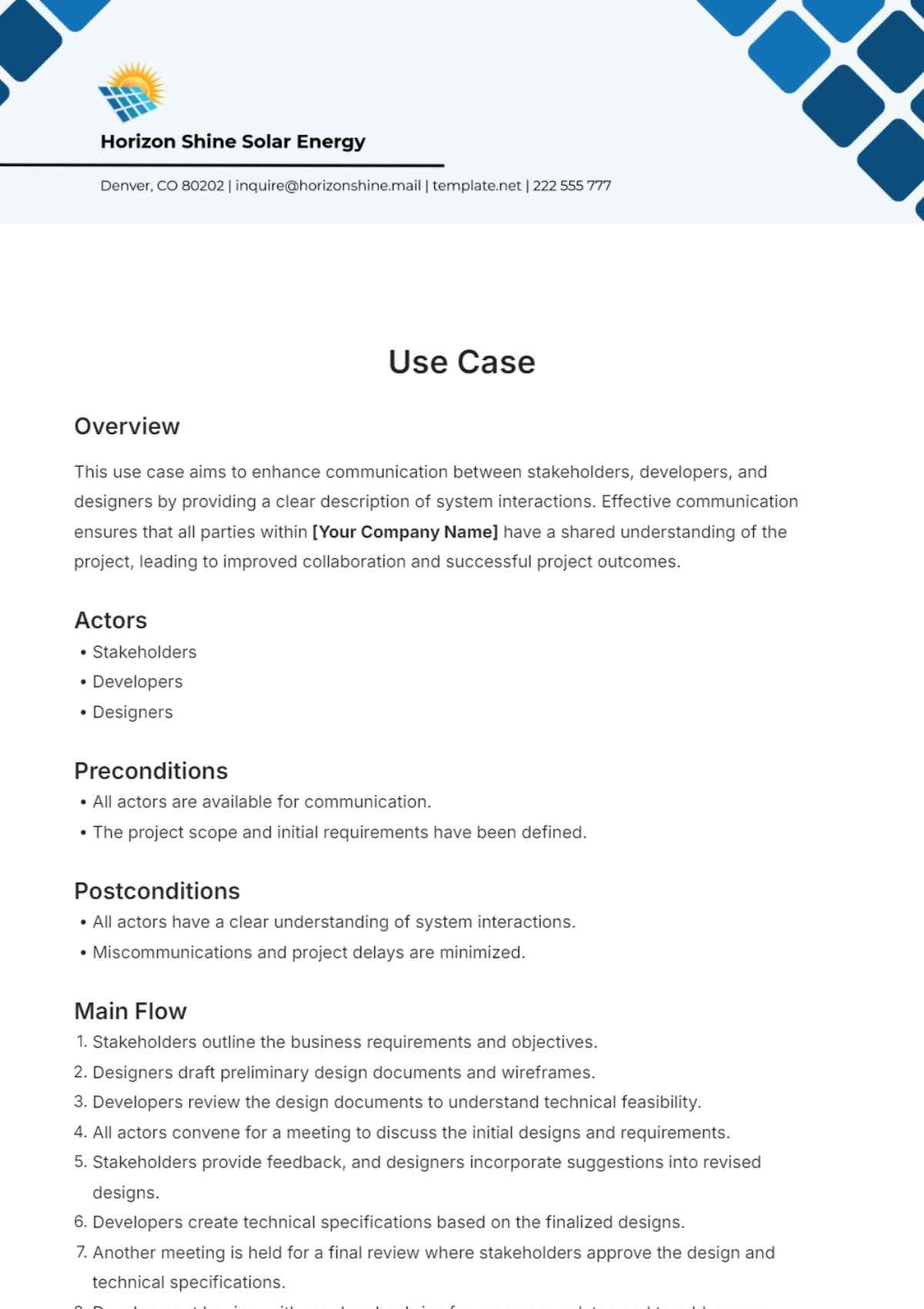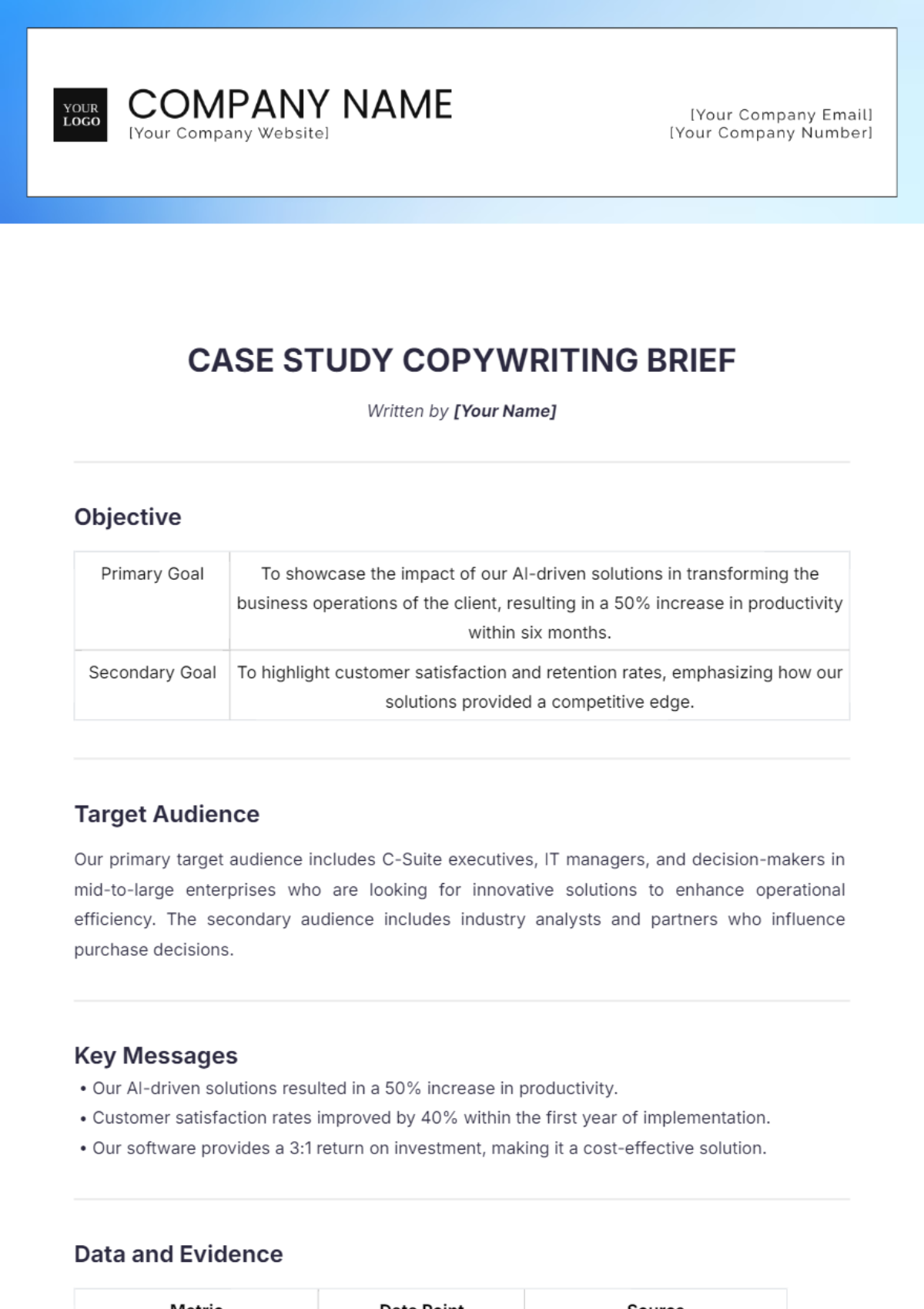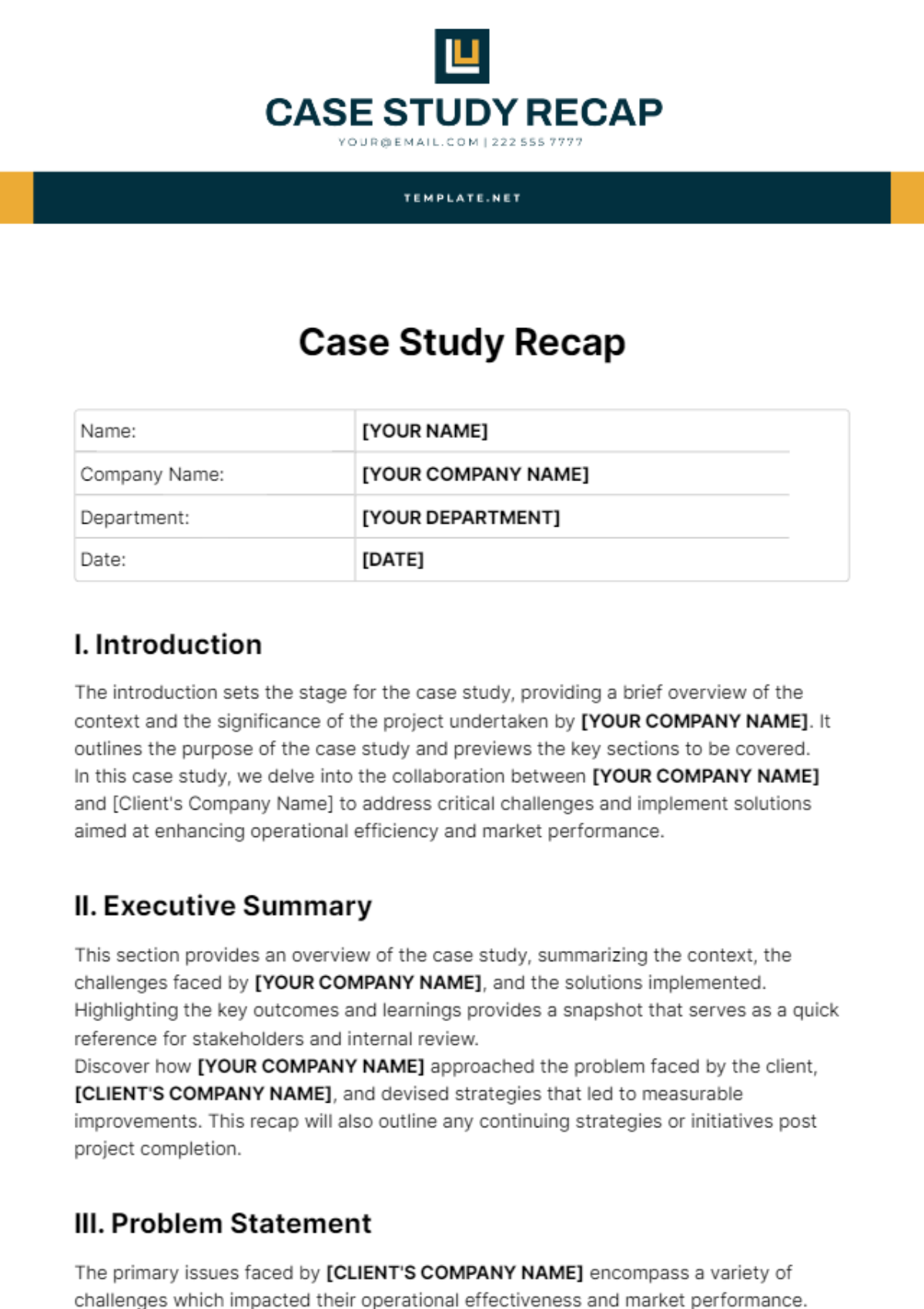Mini Case Study
Prepared by: [Your Name]
I. Executive Summary
Client: Nexus Innovations
Location: 123 Tech Lane, Silicon Valley, CA
Contact: contact@nexusinnovations.com
In 2050, Nexus Innovations faced a critical challenge in scaling their enterprise software solutions to meet the rapidly increasing demand from their global clientele. The company's existing infrastructure struggled under the weight of this demand, causing performance bottlenecks and customer dissatisfaction. This case study details the strategies implemented by [Your Company Name] to address these issues, improve performance, and ensure future scalability.
II. Background
Company Overview
Nexus Innovations is a leading provider of enterprise software solutions specializing in AI-driven analytics and data management systems. With a client base spanning multiple industries, including finance, healthcare, and retail, the company is known for its innovative approaches and high-quality service.
Challenge
By mid-2050, Nexus Innovations experienced a surge in user activity that exceeded their system's capabilities. The primary challenges included:
System Performance: Degraded response times during peak hours.
Scalability Issues: Difficulty in scaling infrastructure to meet increased demand.
Customer Complaints: Increasing support tickets due to system slowdowns.
III. Solution
Approach
[Your Company Name] proposed a multi-faceted solution to address the performance and scalability issues. The solution encompassed several key components:
Infrastructure Overhaul
Enhanced Data Management
Performance Optimization
Detailed Breakdown
1. Infrastructure Overhaul
[Your Company Name] designed a new cloud-based infrastructure to replace the outdated on-premises setup. This included:
Component | Description | Benefits |
|---|---|---|
Cloud Migration | Transition to AWS and Azure platforms | Improved scalability and flexibility |
Load Balancing | Implementation of advanced load balancers | Enhanced performance during peak loads |
Data Redundancy | Deployment of multi-region data storage | Increased reliability and fault tolerance |
2. Enhanced Data Management
Improvements were made in data management to ensure efficient processing and retrieval:
Data Indexing: Implemented advanced indexing to accelerate data retrieval.
Database Optimization: Enhanced databases for higher transactions.
3. Performance Optimization
A series of performance-tuning measures were undertaken:
Code Refactoring: Optimized application code to reduce execution time.
New caching mechanisms to reduce database load.
IV. Results
Performance Metrics
Following the implementation of the proposed solution, Nexus Innovations reported significant improvements in system performance. Key metrics included:
Metric | Before Solution | After Solution |
|---|---|---|
Average Response Time | 8 seconds | 2 seconds |
System Uptime | 92% | 99.9% |
Customer Satisfaction | 65% | 90% |
Client Feedback
Nexus Innovations expressed high satisfaction with the results. According to their CTO, Jane Doe:
"The solution provided by [Your Company Name] exceeded our expectations. Our system is now more reliable and performant, which has positively impacted our customer satisfaction and operational efficiency."
V. Conclusion
The successful implementation of the proposed solutions by [Your Company Name] enabled Nexus Innovations to effectively manage their increased demand and improve overall system performance. The project not only resolved immediate challenges but also positioned the company for future growth and stability.





















